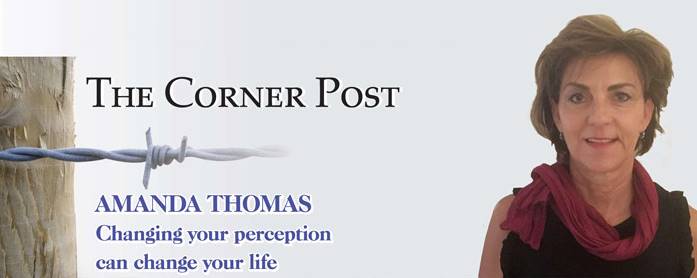April 2018

Although Grain SA is a well-known organisation, many people are not aware of the Grain SA Schools Programme – a result of a partnership between the Maize Trust, Winter Cereal Trust and the Agri-SETA, which all fund the programme in different ways and in different areas.
Exchanging school psychology for guidance
Several people have been contracted to do the presentations at identified schools in all nine provinces of South Africa. One of these facilitators who got involved in the programme about eight years ago, is Amanda Thomas from Bloemfontein in the Free State.
She was the head of the School Psychological Services in the Eastern Cape. When her husband was promoted to a new position in Bloemfontein. She unfortunately could not get an interprovincial transfer. Initially she accepted a position at the University of the Free State, but when she was approached by Willie Kotzé (operations manager) to join the programme she knew it was time for a career change.
As a school psychologist who was involved in remedial education, she embarked on this new journey armed with her knowledge of pupils of all ages and a background in guidance. ‘Although there are sometimes challenges as Grade 9 is a difficult age group, I thoroughly enjoy my work,’ Amanda shares.
At the beginning of the programme she seizes the opportunity to give guidance concerning career choices. She says it is so important to decide at the beginning of the Grade 9 year which subjects one is considering for the rest of your high school path. This way a learner can eliminate unnecessary stumbling blocks in time and choose the correct career path.
Each term during a five-week period which slots into the various schools’ programmes, she addresses two groups of Grade 9 learners per day. Three visits are made to the 56 schools in her allocated area per year – one in the each of the first, second and third terms. Her area includes Bloemfontein, Botshabelo, the eastern Free State, the Goldfields, Boshoff and Kimberley. ‘Some of these Grade 9 groups are very big. A school like Seemohala in Botshabelo has close to 500 Grade 9 learners each.’
Amanda is full of praise for the visual aids which are incorporated in the Grain SA’s Schools Programme. ‘This programme is tailor-made for the pupils with funky presenters appearing on the DVD’s and speaking at the pupils’ level. Even the music is right up their alley,’ she adds. According to Amanda the programme strengthens the hands of the educators as it slots in with the school curriculum on several levels.
She was shocked to discover that less than 40% of the Grade 9 learners who attend the programme, eventually write their final exam in Grade 12. To her it is important to use this programme to motivate pupils to make better choices. ‘If their perception of the agricultural sector can be changed and they become aware of the various opportunities in this field, it can make a huge difference in their lives,’ she says.
She fully agrees with a statement made by Jenny Mathews in an article about the schools programme in the January 2018 edition of Pula Imvula: ‘Educating the youth about agriculture is considered an important strategy in the disaster risk management toolbox towards managing the threat to food security levels. This is exactly why a schools programme is so important in developing the knowledge, skills, and talent of youth.’
She expands on this issue: ‘Unfortunately, in these modern times children are no longer aware of the value of agriculture as the source of food, fibre and energy. Agriculture is so much more than manual labour. It provides everything from sunrise to sunset. Without it you would be hungry, thirsty and naked.’
An awareness campaign aimed at agriculture
Grain SA’s goal with this programme is primarily to create awareness of the agricultural sector and what it entails and especially its contribution to ensuring food security. It is an added bonus if it leads to pupils making a career choice in the agricultural field.
Amanda begins each of the sessions with an introductory talk, followed by the DVD’s which focus on various topics. The programme is divided into three sessions:
Amanda is happy to report that learners and teachers respond positively to the programme. ‘The educators are very grateful to have this programme presented at their schools. For me every excited teacher and inspired student is a highlight. You can immediately see when someone begins to realise the importance of the agricultural sector,’ says Amanda.
The Irish playwright, George Bernard Shaw, said: ‘Progress is impossible without change, and those who cannot change their minds cannot change anything.’ According to Grain SA, 852 schools were visited during 2017 and a total of 115 695 young minds were either changed or at the least, put to thought about the agricultural industry. 3 000 of these were in Amanda’s groups and may just contribute to food security in the future.
This month’s edition of The Corner Post was written by Louise Kunz, Pula Imvula contributor. For more information, send an email to louise@infoworks.biz.
Publication: April 2018
Section: Pula/Imvula